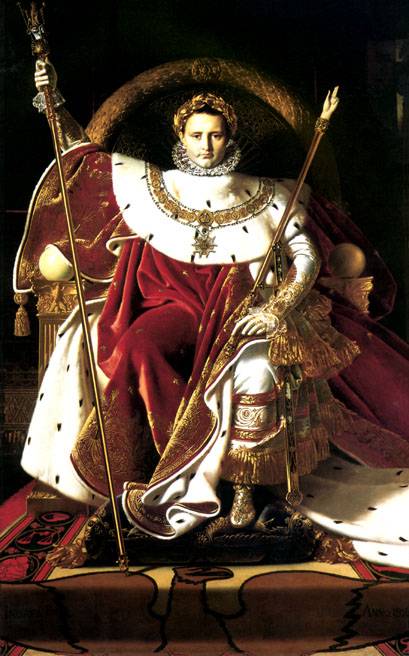So far this thread has been dealing with historical facts, without any personnal attack nor agressivity. So it's ok to me.
IMHO:
You can't oppose the Empire to monarchies. The Empire was also hereditary, it was just defeated before any succession could be accomplished. I'm not sure that the fact he placed the crown on itself himself rather than to receive it from the Churck makes him less monarch.
In pure facts, Napoleon took the power thanks to a coup. However, this coup was planned by Republicans such as Sieyes. If the troops were used, this intervention had not been planned, things were going out of control. By many aspect, the events at the 500 is a failed coup... and later, the power structuree was never taken by the army as you can see it in classic dictatures.
The Bonaparte coup has to be taken in context. Revolutionnary France had been killing its own people, the regime was blocked as it was impossible to change the Constitution and the country was facing rising dangers. As I said, the coup was planned by some of the most respected Republicans.
One important thing to understand is that in the French political culture, it's ok to be a dictature as long as you are serving the country...

Exemple: Robespierre, Bonaparte, Napoleon III, Pétain, De Gaule, (Sarkozy?)
There is a long list of men who have been running the country in period of great dangers and who were allowed to not respect the common law as long as they were serving the common good. I know this might look completly crazy (I don't share this opinion my self) by there is even an expression for this: "Le mythe de l'homme providentiel"
Don't be mistaken, Napoleon might have been a dictator but he was an extremly popular one, and each change to the constitution to form the Empire was decided via a referendum. In Contitutionnal law, we call this type of regime caracterised by a direct link between the leader and the people: "Cesarism". Parlementary regimes supporterts call them dictature, however I feel they miss something important in the analysis.
Last thing, contrary to most European monarchies at the time, Napoleon was a progressist. Modern Europe (except Great-Britain) is still using the solid basis he built for modern admnistration: Napoleonic code, organised administration, modern roads, etc. Under the Empire, plenty of people were able to become rich and famous without respect of their origins. One could not say the same of his ennemies.
This is one of the reasons why Napoleon, despite his coup, is still very popular in France.
As you can see, if the points about Napoleon being a dictator are pretty much valid from a parliementary point of view, the facts are more complex. Never forget that in 1815, Napoleon was still popular enough to be able to retake the country from the king with only an handfull of men.
To be discussed of course!


 )
)
